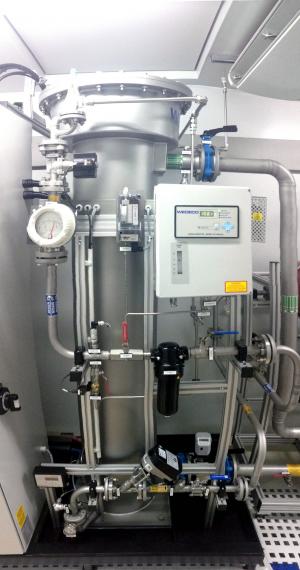Ozonators on their way
6 Feb 2017
Ozone will be produced on site by concentrating oxygen from the atmosphere and circulating the oxigen-enriched gaz through a system of glass tubes and high-voltage electrodes—a process called "Corona discharge".
Ozone is one of the most efficient disinfectants—in ITER, it will be injected into the heat rejection system to limit the growth of bacteria and other living organisms.
A molecule composed of three oxygen atoms, ozone will be produced on site from the oxygen present in the atmosphere. It will be obtained by circulating a flow of oxygen-enriched gas (90 percent) through a system of glass tubes and high-voltage electrodes.
The installation, housed in three large containers located at the south edge of the cooling basins, comprises four ozone generators. Normally, only three of these "ozonators" will be in operation at a given time, each producing an average of 4 kilograms per hour.
As ozone rapidly dissipates in water, the ozonation system will have to run continuously ... although full capacity will only be required during plasma operation.
Part of India's contribution to the project, the fully equipped containers left the port of Hazira on 27 January and are expected at Fos harbour on 19/20 February.


